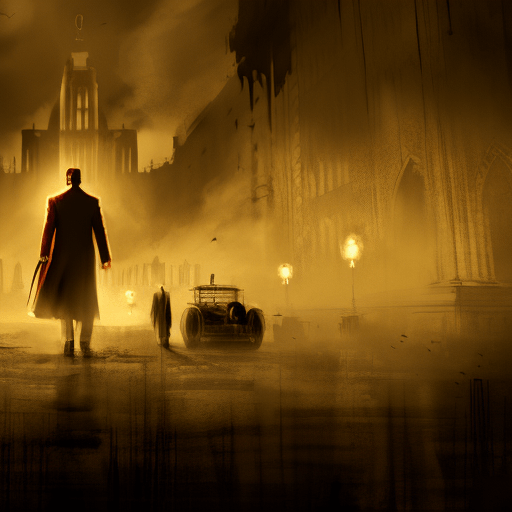One-line summary:
The Godfather is a gripping novel that delves into the dark world of organized crime, exploring themes of power, loyalty, and the consequences of one’s choices.
The Corleone Family: A Legacy of Power and Loyalty
In Mario Puzo’s iconic novel, The Godfather, readers are introduced to the Corleone family, an Italian-American mafia dynasty led by the enigmatic Don Vito Corleone. Set in the 1940s, the story follows the intricate web of power, loyalty, and violence that defines the world of organized crime.
Vito Corleone, known as the Godfather, is a complex character who embodies both benevolence and ruthlessness. He is revered by his community for his acts of charity and protection, but feared by his enemies for his ability to exact revenge without hesitation. The Godfather’s power lies in his ability to manipulate situations and people, making him a formidable force in the criminal underworld.
As the story unfolds, we witness the struggles faced by Vito’s sons, Michael, Fredo, and Sonny, as they navigate the treacherous world their father has built. Each son represents a different facet of the family’s legacy, with Michael emerging as the most intriguing character. Initially distant from the family business, Michael is drawn into the world of crime after an attempt on his father’s life. He transforms from a war hero and college-educated outsider to a cunning and ruthless leader who will stop at nothing to protect his family.
The Cost of Loyalty and the Consequences of Choices
At its core, The Godfather explores the theme of loyalty and the price one must pay for it. Loyalty is a fundamental value within the Corleone family, and those who betray it face dire consequences. The novel delves into the intricate dynamics of loyalty, showcasing the lengths to which individuals will go to protect their loved ones and honor their commitments.
However, the novel also highlights the dark side of loyalty, illustrating how it can lead to a cycle of violence and destruction. The characters in The Godfather are constantly forced to make difficult choices, often sacrificing their own happiness and morality for the sake of loyalty. These choices have far-reaching consequences, impacting not only the individuals involved but also the entire Corleone empire.
An Exploration of Power and its Corrupting Influence
Another central theme in The Godfather is the corrupting influence of power. Throughout the novel, we witness how the pursuit and acquisition of power can transform individuals, leading them down a path of moral ambiguity and destruction.
Vito Corleone’s rise to power is a testament to his cunning and strategic thinking. He understands that power is not only about physical strength but also about influence and control. The Godfather manipulates situations and people to maintain his position at the top of the criminal hierarchy. However, as the story progresses, we see how power begins to corrupt even the most virtuous characters, turning them into ruthless individuals willing to commit unspeakable acts.
Key Takeaways:
- The Godfather explores the themes of power, loyalty, and the consequences of one’s choices in the world of organized crime.
- Loyalty is a fundamental value within the Corleone family, but it comes at a high cost.
- The pursuit of power can corrupt even the most virtuous individuals, leading them down a path of moral ambiguity.
“I’ll make him an offer he can’t refuse.” – Don Vito Corleone
In conclusion, The Godfather is a gripping tale that delves into the dark underbelly of organized crime, exploring themes of power, loyalty, and the consequences of one’s choices. Mario Puzo’s masterful storytelling and complex characters make this novel a timeless classic. Whether you are drawn to the allure of the mafia or fascinated by the complexities of human nature, The Godfather is a must-read that will leave you pondering the price of power and the true meaning of loyalty.












